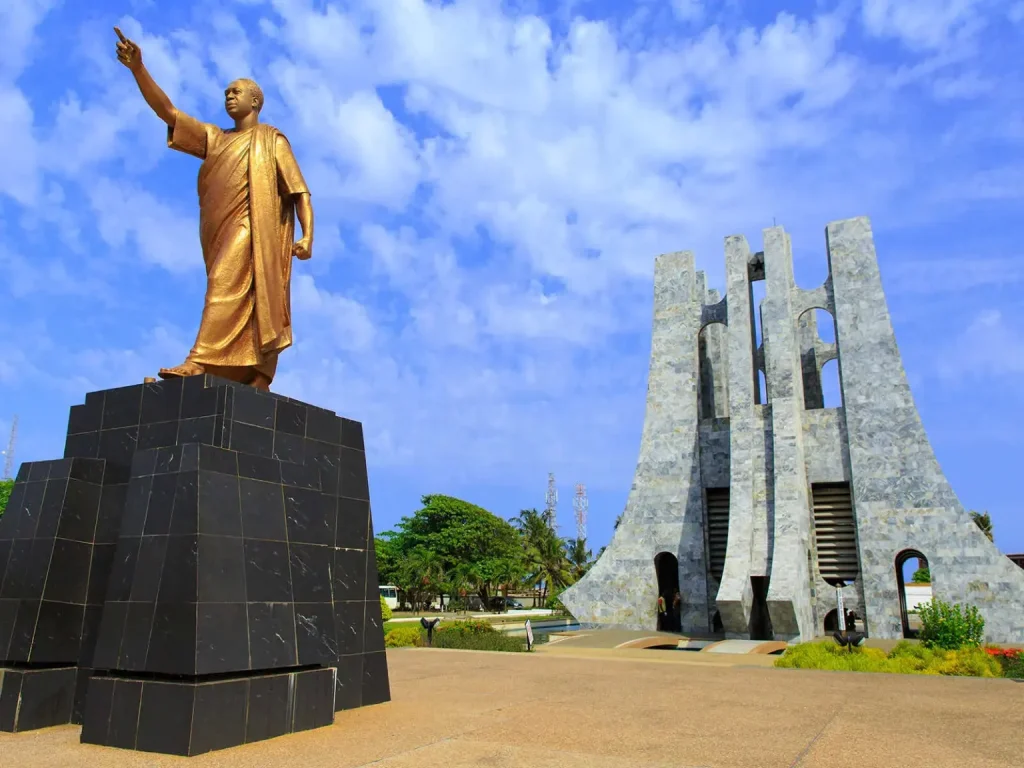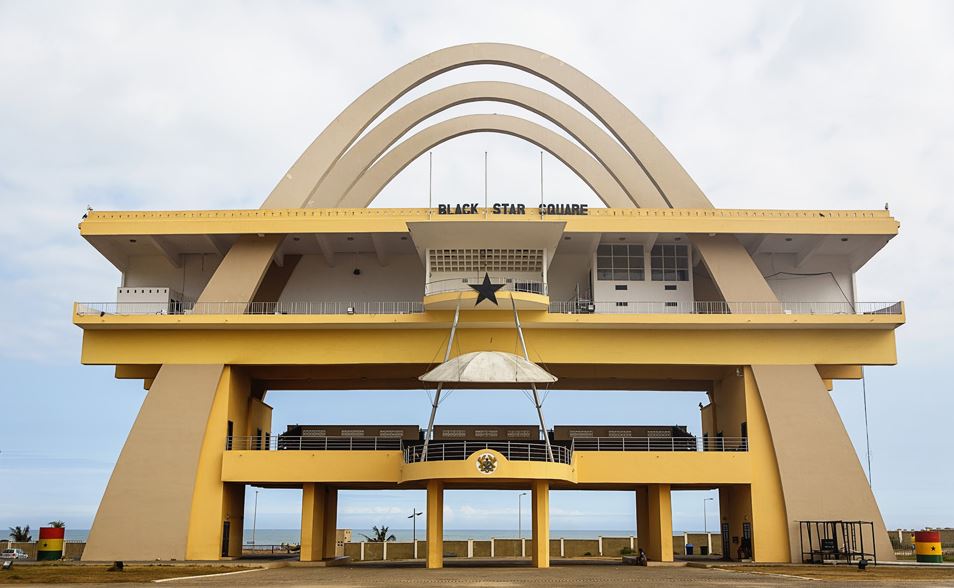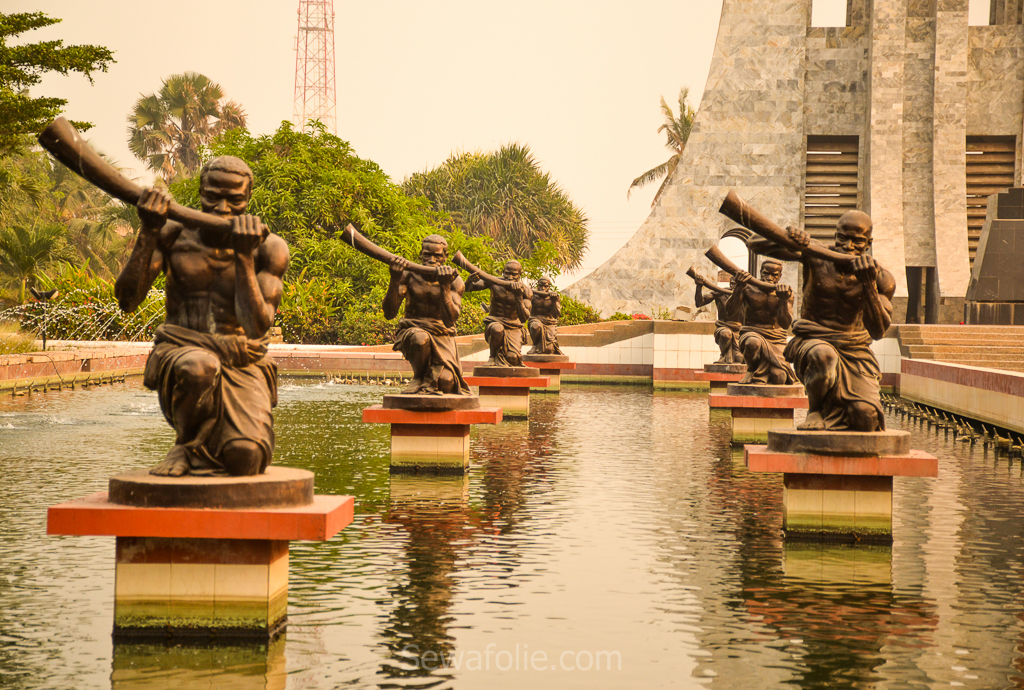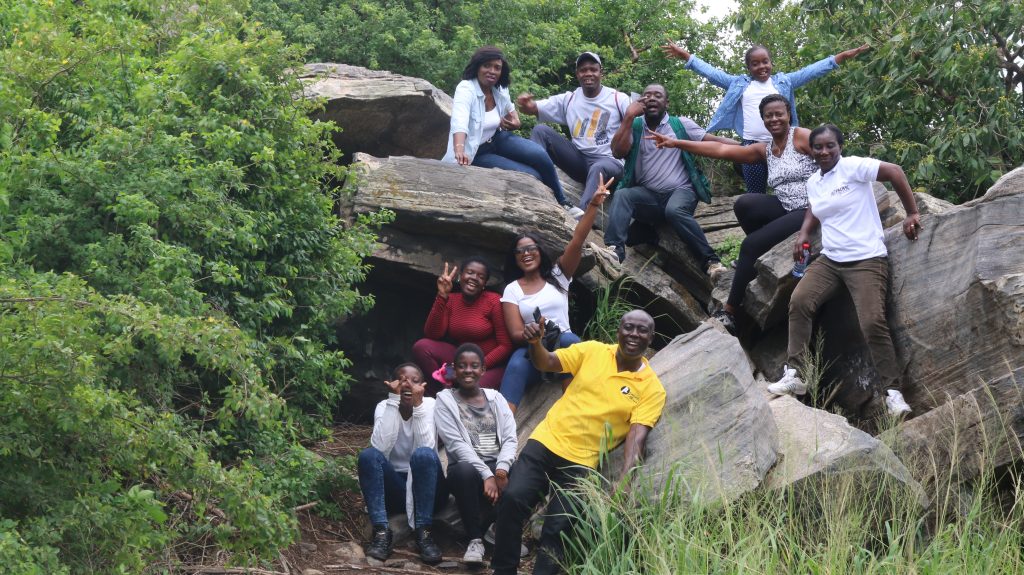Ghana, often celebrated as the “Centre of the World,” is a living story of Africa’s soul, culture, and progress. It sits at a metaphorical crossroads – the Greenwich Meridian (0° longitude) crosses Ghana’s coast at Tema, and just south of Ghana the Equator (0° latitude) meets that line. Its location is symbolic (greenwich mean time starts here), but Ghana’s real center is the warmth of its people and the richness of its heritage. With breathtaking landscapes, vibrant traditions, and a growing global presence, Ghana stands out as one of Africa’s must-visit destinations in 2025.
1. Ghana’s Stunning Natural Beauty
- Lake Volta – This vast reservoir (about 8,502 km²) is the world’s largest man-made lake by surface area. It stretches from the Akosombo Dam through scenic countryside. Boating and fishing are popular here, and islands like Dodi offer quiet retreats. Lake Volta powers much of Ghana’s electricity and creates a tranquil backdrop for rural life.
- Wli Waterfalls and Rainforests – In the Volta Region, Wli Falls plunges nearly 80 meters, making it the tallest waterfall in West Africa. Surrounded by lush tropical forests, it attracts hikers and nature lovers. The forest around Wli teems with butterflies and fruit bats. Nearby peaks like Mount Afadjato (noted as Ghana’s highest) and the village of Amedzofe offer additional trekking adventures.
- Beaches and Rainforest Trails – Ghana’s coast is lined with beautiful beaches. Labadi (La Pleasure) Beach in Accra comes alive on weekends with live DJs, drumming, and dancing until dawn. Surf-friendly Busua and Kokrobite Beach in the west offer relaxation and water sports. Inland, Kakum National Park features a famous rainforest canopy walkway (350 m long, 30–40 m high) that lets you stroll above the treetops. The central and southern rainforests (like those near Kakum and Ankasa) are rich with wildlife and hiking paths.
2. Ghanaian Culture and Traditions
- Warm Hospitality (“Akwaaba”) – Ghanaians pride themselves on hospitality. The word “Akwaaba” (Akan for “welcome”) is more than a greeting; it reflects a genuine openness to visitors. You’ll find that families and neighbors often support one another, and even strangers are greeted kindly.
- Family & Community – Extended family ties and storytelling are central. Many Ghanaians live in compounds where grandparents, parents, and children interact daily. Respect for elders and community bonds play big roles.
- Markets & Daily Life – Vibrant street markets (Accra’s Makola, Kumasi’s Kejetia) are hubs of activity. Look for traditional crafts, spices, and colorful cloth. Ghanaians also observe cultural customs like naming ceremonies and traditional greetings. English is the official language, but local tongues (Twi, Ga, Ewe, Dagbani, etc.) and Pidgin English are widely spoken – a reflection of Ghana’s diversity.
- Festivals Year-Round – Homowo (Accra/Ga): Celebrated in late summer by the Ga people to “hoot at hunger” after a historic famine. It includes street parades, music, and a special meal of kpokpoi. Aboakyir (Winneba, Central Region): A famed deer-hunting festival of the Effutu people, featuring costume, dance, and ritual reenactments. Hogbetsotso (Anlo-Ewe, Volta Region): Commemorates a historical migration with drumming, dances and canoe processions. These colorful festivals give visitors a front-row seat to Ghanaian tradition.
3. Kente Cloth & Artistic Heritage
- Kente Cloth – No visit is complete without seeing kente, the handwoven silk-and-cotton textile that is Ghana’s national cloth. According to tradition, kente originated in Bonwire (Ashanti Region). Today it is officially recognized as a geographic indication of Ghana (protecting its authenticity). Master weavers in Bonwire, and also in Kumasi and Accra, still craft kente in bold patterns. Tourists can visit weaving villages to try their hand at the loom or buy vibrant kente scarves and stoles.
- Adinkra Symbols – Another iconic art form is Adinkra, a set of visual symbols from the Akan people. Each Adinkra symbol represents a proverb or philosophical concept (e.g. Gye Nyame meaning “Except for God”). You’ll see Adinkra motifs stamped on fabric, carvings, or pottery around the country. They encapsulate Ghanaian values like unity, wisdom, and strength. Artisans sell prints, jewelry and crafts featuring these symbols, making wonderful souvenirs that carry deep meaning.
- Traditional Crafts – Ghana is known for woodcarvings, masks, beadwork, and brass/copper goods (the famous Ashanti gold weights and Akan gold jewelry). Visiting markets or workshops in Kumasi and elsewhere is a chance to support local artisans and learn about centuries-old crafts.
4. Music, Drumming & Dance
Ghana’s cultural heartbeat is expressed in its music and dance. Traditional drumming styles like Adowa and Kpanlogo involve energetic dances during festivals and ceremonies. Contemporary Ghanaian music also enthralls visitors: Highlife and Hiplife are Ghanaian music genres mixing local rhythms with jazz and hip-hop. Ghanaian stars like Sarkodie (hip-hop) and Stonebwoy (dancehall/afro-pop) have international followings. In Accra and Kumasi, music venues and festivals showcase everything from folk xylophones (gyil) to afrobeats. Whether you catch a live drumming circle in a village square or a DJ spinning Afrobeats in a nightclub, the infectious rhythm is unforgettable.
5. Historical Landmarks That Tell Africa’s Story
- Cape Coast & Elmina Castles – These UNESCO World Heritage sites on the Central coast are powerful reminders of the transatlantic slave trade. Built by Europeans (Dutch, British, Portuguese) in the 16th–18th centuries, they served as holding forts (“slave castles”) for millions of Africans awaiting passage to the Americas. Tours of the dungeons and “Door of No Return” leave many visitors reflecting on Ghana’s role in history.
- Kwame Nkrumah Mausoleum – Located in central Accra, this park honors Ghana’s first President, Dr. Kwame Nkrumah, leader of independence in 1957. The Mausoleum (and an adjacent museum) preserve his legacy. A bronze statue stands at the very spot where Nkrumah declared freedom from British rule in 1957. The site is both a historical landmark and a source of national pride.
- Larabanga Mosque – Up in Northern Ghana, this mud-brick mosque is often called the “Mecca of West Africa.” Founded around 1421 and rebuilt several times, Larabanga is the oldest mosque in Ghana and one of the oldest in West Africa. Its Sudano-Sahelian architecture (with tall tapered towers) is strikingly photogenic. Pilgrims and tourists visit to see its ancient Quran and centuries-old baobab tree legend. It’s a sacred living monument to Ghana’s Islamic heritage.
6. Wildlife & National Parks Worth Exploring
Nature lovers will find much to explore: Ghana’s ecosystem ranges from forests to savannah.
- Kakum National Park (Central Region): Famous for its rainforest canopy walkway. This rope bridge system (350 m long, up to 40 m high) lets you hike through the treetops. The forest is home to monkeys, butterflies, and over 300 bird species. Guided tours often include walks to see waterfalls or butterfly farms nearby.
- Mole National Park (Northern Region): Ghana’s largest wildlife reserve (4,577 km²) and premier safari park. It supports one of the highest elephant populations in West Africa, along with antelope, warthogs, and chimpanzees. Visitors can take guided jeep safaris to see elephants and spot hippos in watering holes. Mole’s dry season (Nov–Apr) is best for wildlife viewing.
- Butterfly & Bird Sanctuaries: The Bobiri Forest Reserve (Ashanti Region) has a famous butterfly sanctuary where hundreds of butterfly species congregate. Shai Hills (near Accra) and Ankasa (in the southwest rainforest) are also excellent for birdwatching (ghana has over 700 bird species).
- Other Parks & Reserves: Bunso and Bia are known for rainforests; Shai Hills for savannah wildlife; Digya along Lake Volta; and more. Each park offers lodges or camping, making Ghana an emerging eco-tourism destination.
7. Authentic Ghanaian Cuisine You Must Try
Ghanaian food is a highlight – bold, hearty, and deeply satisfying. Don’t miss these staples:
- Jollof Rice: A tomato-and-spice flavored one-pot rice (Ghanaian jollof has its own style) usually served with chicken or fish. It’s Ghana’s most famous dish internationally.
- Fufu & Light Soup: Pounded cassava and plantain (fufu) served with a savory soup (peanut, palmnut, or light veggie-and-fish soup). Eat it by hand – pinch off fufu and dip into the soup.
- Waakye: Rice and beans cooked together, typically eaten with shito (pepper sauce), fried plantain, boiled egg, and some protein like fish or meat. A common roadside breakfast.
- Kenkey & Fish: Fermented corn dough dumplings (wrapped in corn husks) served with fried fish, hot pepper sauce (shito) and sometimes soup or stew. Savory and tangy.
- Kelewele: Spicy fried plantain cubes, seasoned with ginger and chili. A popular street snack.
- Chinchinga (Kebabs): Skewered meat (beef, goat, or chicken) grilled with a spicy rub. Perfect with cold palm wine or beer.
Try these at local chop bars (traditional eateries) or street-side stalls for the most authentic flavors. Each region may have its specialties (e.g. etoto or abomu stews in the North, banku with okra stew in the south), so be adventurous – Ghana’s food scene is a delicious reflection of its culture.
Explore Aburi Botanical Gardens: Ghana’s Natural Wonder with Pacific Tours

8. Why Ghana is Africa’s Emerging Business Hub
Modern Ghana is not just history and nature – it’s also an increasingly important economy in Africa.
- Growing Economy: Ghana has one of West Africa’s largest economies, driven by agriculture, mining (gold, bauxite), oil & gas, and services. The World Bank reports that Ghana’s GDP grew about 5.7% in 2024, demonstrating resilience and opportunity. It produces roughly a third of the world’s cocoa and is a major gold exporter. This growth attracts investors across sectors like renewable energy, agribusiness, fintech, and tourism.
- Business Environment: The Ghanaian government continues to improve infrastructure (roads, ports, power plants) and policies to encourage investment. Accra, Kumasi and Takoradi have become regional hubs for finance, tech start-ups, and manufacturing. Ghana ranks favorably on many sub-Saharan business indices, in part because of its political stability and good governance.
- Conferences & Corporate Travel: Accra has modern conference centers and hotels that host international summits and trade shows year-round. Organizations like Pacific Tours Ghana provide end-to-end business travel support – from VIP airport transfers to multilingual guides – so companies can combine work with cultural immersion. Whether you’re here for a business summit or scouting ventures, Ghana’s ease of access (English language, good flight connections) and friendly people make it a stress-free choice.
9. Best Time to Visit Ghana & Practical Tips
Seasonal Weather: Ghana has a tropical climate with two main travel seasons. The major dry season (November–March) and a shorter dry spell (July–August) are ideal for sightseeing and festivals. The rainy seasons (April–June, September–October) bring lush green landscapes (great for photography) but can cause road travel delays. Plan around festivals or safaris in the dry months.
Travel Essentials:
- Passport & Visa: Most visitors need a visa. Apply well ahead or use Ghana’s e-visa portal if eligible.
- Vaccines: Yellow fever vaccination is required for entry, and you should be up-to-date on routine immunizations. Malaria is present; consult a doctor about prophylaxis. Currency: The Ghanaian Cedi (GHS) is the local currency. ATMs and currency exchange are widely available in cities, but carry some cash for rural areas.
- Health: Stick to bottled or purified water and peel fruits. Use insect repellent and nets in the evening.
Packing Tips: Light cotton clothing is best – it’s hot and humid. Bring sturdy walking shoes for tours and hikes. A light rain jacket or umbrella is useful in rainy season. Don’t forget sunscreen and a hat for beach days. For altitudes in the north (nighttimes can be cooler), a light sweater may be handy.
Transportation: Ghana has an expanding road network; bus and car hire services connect major cities. Domestic flights (e.g. to Tamale in the north) save time. In Accra and Kumasi, taxis and ride-hailing apps are convenient.
Local Etiquette: Greetings are important. A simple “Hello” or “Good morning/afternoon” goes a long way, often followed by “How are you?” Expect to shake hands with the right hand. When entering shops or homes, a brief greeting is customary.
Before you go, consider a pre-departure briefing with a Ghana-based tour operator. For example, Pacific Tours Ghana offers personalized trip-planning to help with visas, logistics, and cultural orientation. With a little preparation, you can travel Ghana with confidence and make the most of every moment.
The Untapped Goldmine: Why MICE Tourism in Ghana is The Next Big Opportunity
Travel with Pacific Tours Ghana
Exploring Ghana’s diverse offerings is easiest with a knowledgeable local partner. Pacific Tours Ghana specializes in custom itineraries across all interests:
- Cultural & Heritage Tours: Join experts for market visits, traditional festivals, and storytelling sessions.
- Historical Journeys: Dedicated guides take you through colonial castles, independence sites, and tribal villages with deep context.
- Eco & Adventure Tours: Hikes in rainforests, safaris in Mole, and canopy walks at Kakum come alive with local insight.
- Business Travel: Seamlessly blend meetings with leisure. Arrangements include meeting rooms, VIP transportation and group excursions after conferences.
- Culinary Trails: Taste your way through Accra’s street food scene and Kumasi’s markets, led by a foodie guide.
Whether solo or a group, Pacific Tours Ghana crafts each itinerary to match your interests and travel style. [Discover Ghana with confidence – let Pacific Tours Ghana show you the heart of Africa!]



